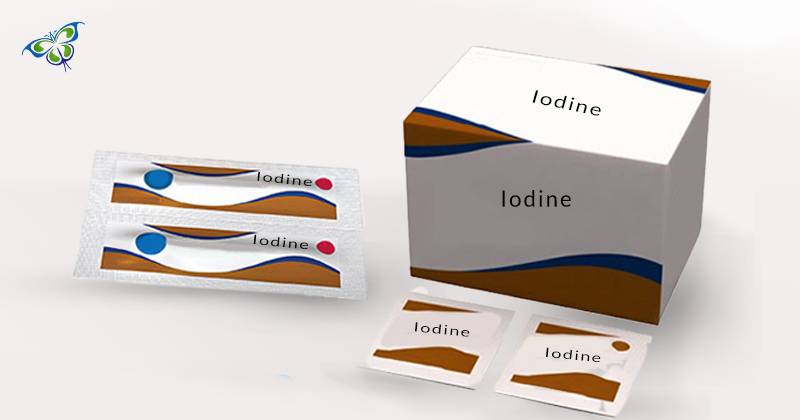
Hello
Select Address

Povidone or polyvinylpyrrolidone was originally developed to boost plasma volume by creating osmotic pressure. Povidone mixed with Iodine forms an antiseptic solution for minor wounds in the skin, eyes, and vagina and is far more effective than other iodine formulations. Surgeons use this solution as a disinfectant prior to surgery. It is the safest and most effective medicine included in the World Health Organization List of Essential Medicines.
Povidone Iodine PVP-I solution plays a huge role in wound care management where the iodine is the bactericidal component and povidone acts as a carrier. It is formulated in varying concentration of Iodine and come in different forms and consistencies like solutions, ointments, and powder. Povidone-iodine pessaries, liquid soaps, and surgical scrubs are some of the many widely used, over-the-counter topical products.
What is Povidone Iodine Solution used for?
Povidone Iodine is the generic name for a very common medicine used daily, Betadine. It can be used in multiple effective ways:
• Skin Disinfectant: it is used to clean the area of skin before the surgical procedure also to disinfect the hands before surgery. It is also used as an antiseptic and first aid.
• Wounds Treatment: it is used to treat and prevent infections in wounds, minor cuts, and minor burns, vaginal infections, infectious ulcers, etc.
• Eyes: a lower concentration of the solution is used to prevent conjunctivitis as it is effective against fungus and viruses.
• Dental care: dentists used a mild concentration as mouth wash before any kind of surgery.
• Vaginal Candidiasis: It is used is as a fungal disinfectant wash for vaginal yeast infection.
• Sterilization: medical equipment is sterilized by washing them in this solution.
What is the mechanism of action of Povidone-iodine?
PVP-I is a combination of Iodine and a water-soluble polymer. Once it is applied, the iodine separates from the complex. In its free form Iodine penetrates the microbial cell membrane and interacts with the cytoplasm and cytoplasmic membrane.
Povidone Iodine is highly antibacterial and acts against gram-positive and gram-negative bacteria, fungi, protozoa, and viruses.
What are the possible side effects of Povidone Iodine?
The clinical povidone-iodine solution is 10%. This solution is also available at 0.3% concentration. Side effects of using the povidone-iodine solution are very rare, but it may cause a severe allergic reaction in sensitive people especially in patients with kidney dysfunction.
• It might cause irritation and pain if a high dose comes in contact with the eye or skin.
• Consumption of povidone-iodine may cause diarrhea, vomiting and gastrointestinal burns.
• People allergic to iodine may face difficulty in breathing or chest tightness.
If severe complications occur, it is recommended to immediately meet a doctor.
Frequently Asked Questions:
1. Does Povidone Iodine expire?
Povidone Iodine Solutions like Betadine have a shelf life of 3years. Iodine is a natural element and cannot expire, however, if there is any written statement on the cover, it is not recommended to follow the guidelines.
2. Is Povidone Iodine the same as Betadine?
Povidone Iodine is a combination of Povidone, elemental Iodine, and hydrogen iodide. It has 9% to 12% iodine and effectively kills microbes. It is sold under various brand names like Betadine.
3. Can Povidone Iodine be used during Pregnancy?
The use of Povidone Iodine during pregnancy is no longer encouraged. It was noticed that PVP-I used during this phase increased the amount of urinary iodine excretion and affected the thyroid gland. These women were reported with thyroid dysfunction, both hypothyroidism and hyperthyroidism, and also miscarriage.
4. Is Povidone Iodine an antibiotic?
Yes, Povidone Iodine is highly effective against gram-positive and gram-negative bacteria. As all wounds are colonized by microorganisms like bacteria, PVP-I promotes effective healing.
5. How long does it take for Povidone Iodine to react?
Povidone Iodine starts acting immediately after applying. However, how long it will keep acting depends on the size and severity of the wound.
6. Why is Povidone Iodine important?
It is important to use Povidone-Iodine when attending a wound or before surgery to prevent infection and support the healing process. Microbial attack slows down the healing process.
7. Can Povidone Iodine cause allergy?
Povidone Iodine allergy is very rare because iodine is a natural element that occurs in the body. However, a person sensitive to Iodine may suffer from adverse reactions like dermatitis and hives.
8. Can I use Povidone-Iodine on open wounds?
Solutions like hydrogen peroxide, rubbing alcohol and iodine that are traditionally used on open wounds can be harsh for the skin and are more likely to damage tissues than heal them. 1-10% povidone-iodine concentration, however, can be safely used on wounds.
9. Is Povidone Iodine toxic?
If used in excessive amounts, there is a risk of Iodine toxicity. This may lead to kidney malfunction, altered electrolyte concentration in the body or another organ failure.
10. Is Povidone Iodine more effective than the tincture of Iodine?
Yes, Povidone Iodine is more effective than the tincture of Iodine because it is slowly absorbed by the skin tissues thus making it a longer-lasting antiseptics and preferable for surgical procedures.
11. How long does Povidone-Iodine solution work in an area?
The brown color is the mark of its effectiveness. When the solution turns pale yellow, this means all the free iodine has been used up and the solution is no more effective in the applied area.
Povidone Iodine is an easily available prep-solution and can be found in any medical store. It should be stored in a cool place, not in a freezer or in a heated area. It is recommended to use medications with guidance or proper knowledge. Hope this blog provides enough information to answer your queries.